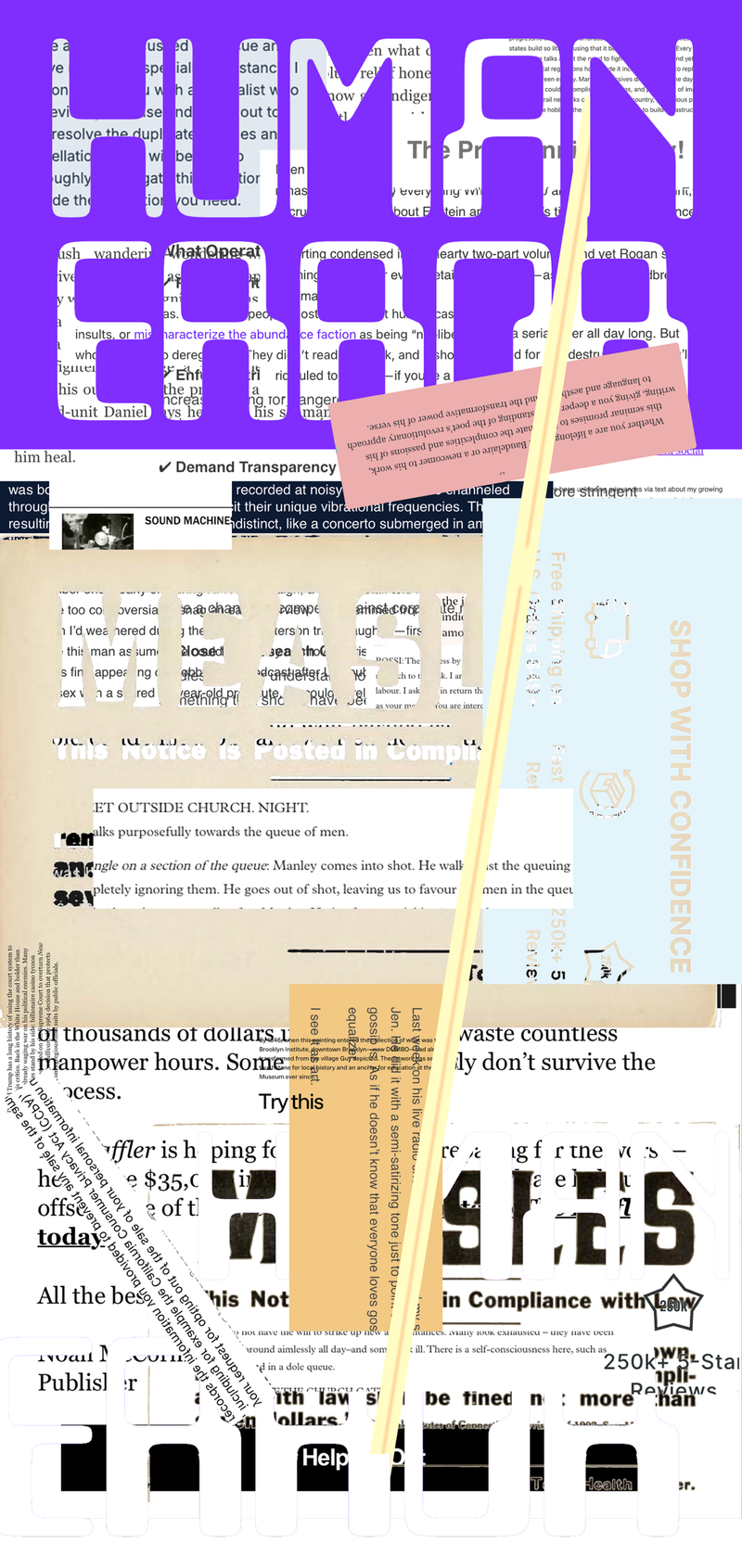From the past week of my inbox.
How I made this
First, I took screenshots of emails and newsletter content, as well as some other bits and bobs:
Then I wrote a python script to separate text from background in a particular image
import cv2
import numpy as np
import os
import argparse
def split_text_background(image_path, output_dir):
os.makedirs(output_dir, exist_ok=True)
image = cv2.imread(image_path, cv2.IMREAD_UNCHANGED)
if image is None:
print(f"Error: Could not open image at {image_path}")
return
if image.shape[2] == 3: # If only BGR channels exist
image = cv2.cvtColor(image, cv2.COLOR_BGR2BGRA)
gray = cv2.cvtColor(image, cv2.COLOR_BGR2GRAY)
_, text_mask = cv2.threshold(gray, 200, 255, cv2.THRESH_BINARY_INV)
text_only = np.zeros_like(image, dtype=np.uint8)
text_only[:, :, 0:3] = image[:, :, 0:3]
text_only[:, :, 3] = text_mask
background_only = image.copy()
background_only[:, :, 3] = cv2.bitwise_not(text_mask)
base_name = os.path.splitext(os.path.basename(image_path))[0]
background_output_path = os.path.join(output_dir, f"{base_name}_background.png")
text_output_path = os.path.join(output_dir, f"{base_name}_text.png")
cv2.imwrite(background_output_path, background_only)
cv2.imwrite(text_output_path, text_only)
print(f"✅ Background extracted and saved to: {background_output_path}")
print(f"✅ Text extracted and saved to: {text_output_path}")
if __name__ == "__main__":
parser = argparse.ArgumentParser(description="Split text and background from an image while preserving transparency.")
parser.add_argument("image_path", help="Path to the input image")
parser.add_argument("-o", "--output", default=".", help="Output directory (default: current directory)")
args = parser.parse_args()
split_text_background(args.image_path, args.output)
After creating these text masks the hard way, I got to work in Figma stitching it all together.





